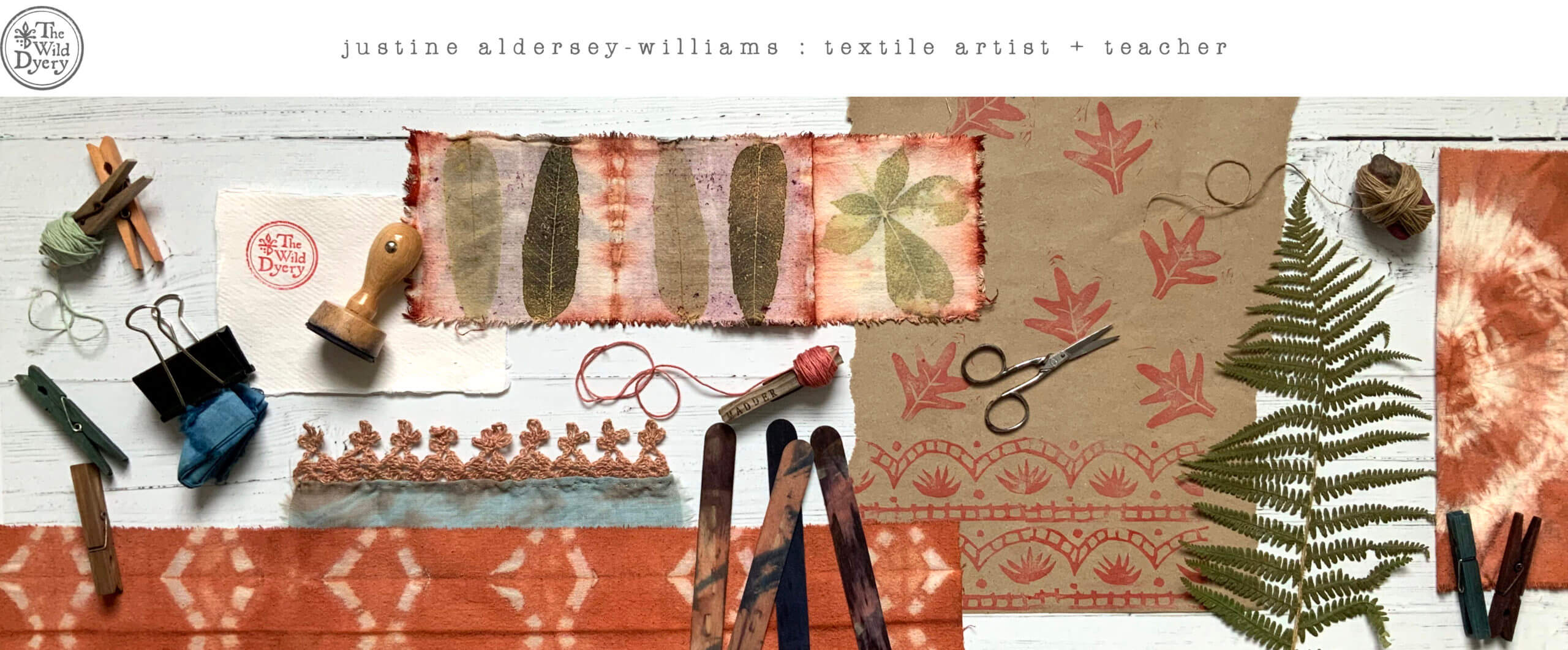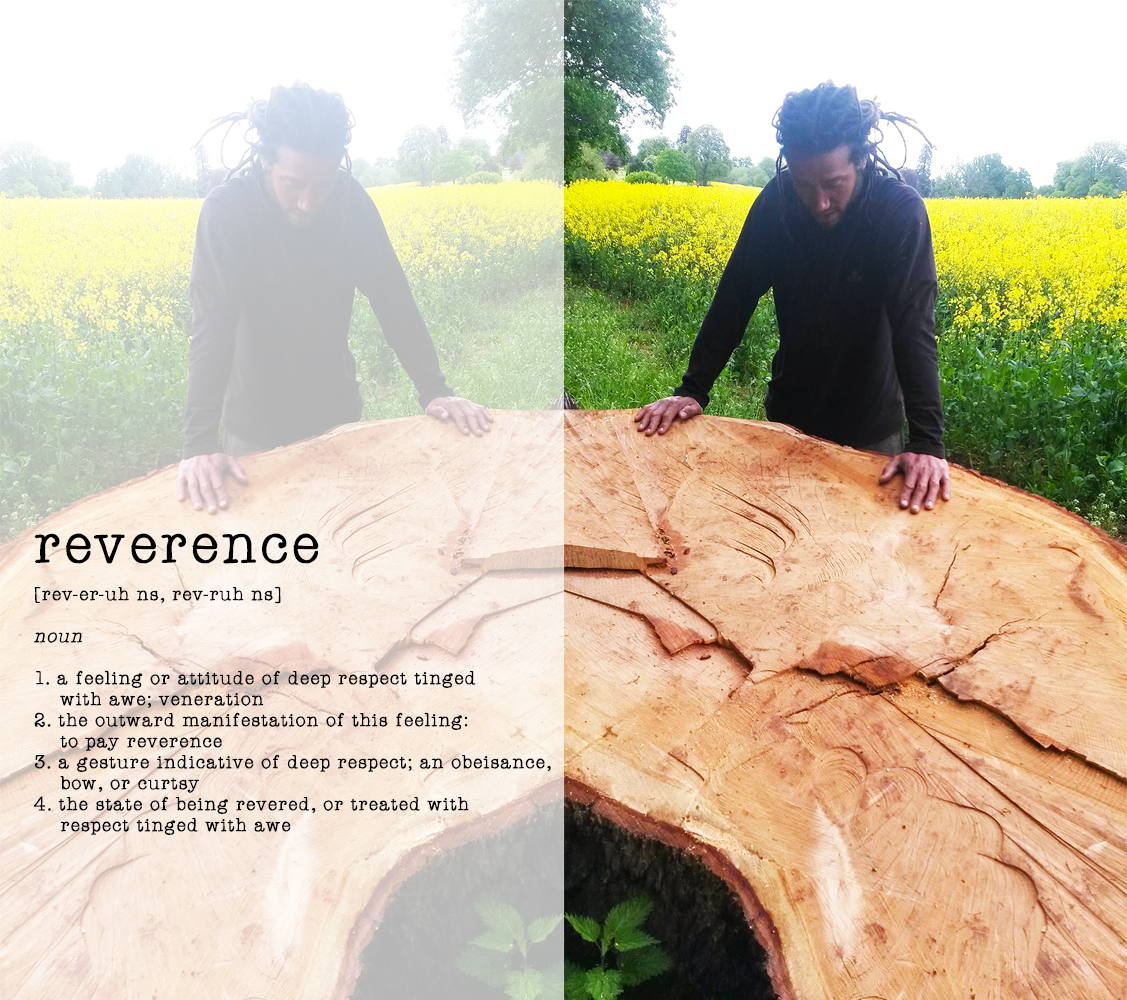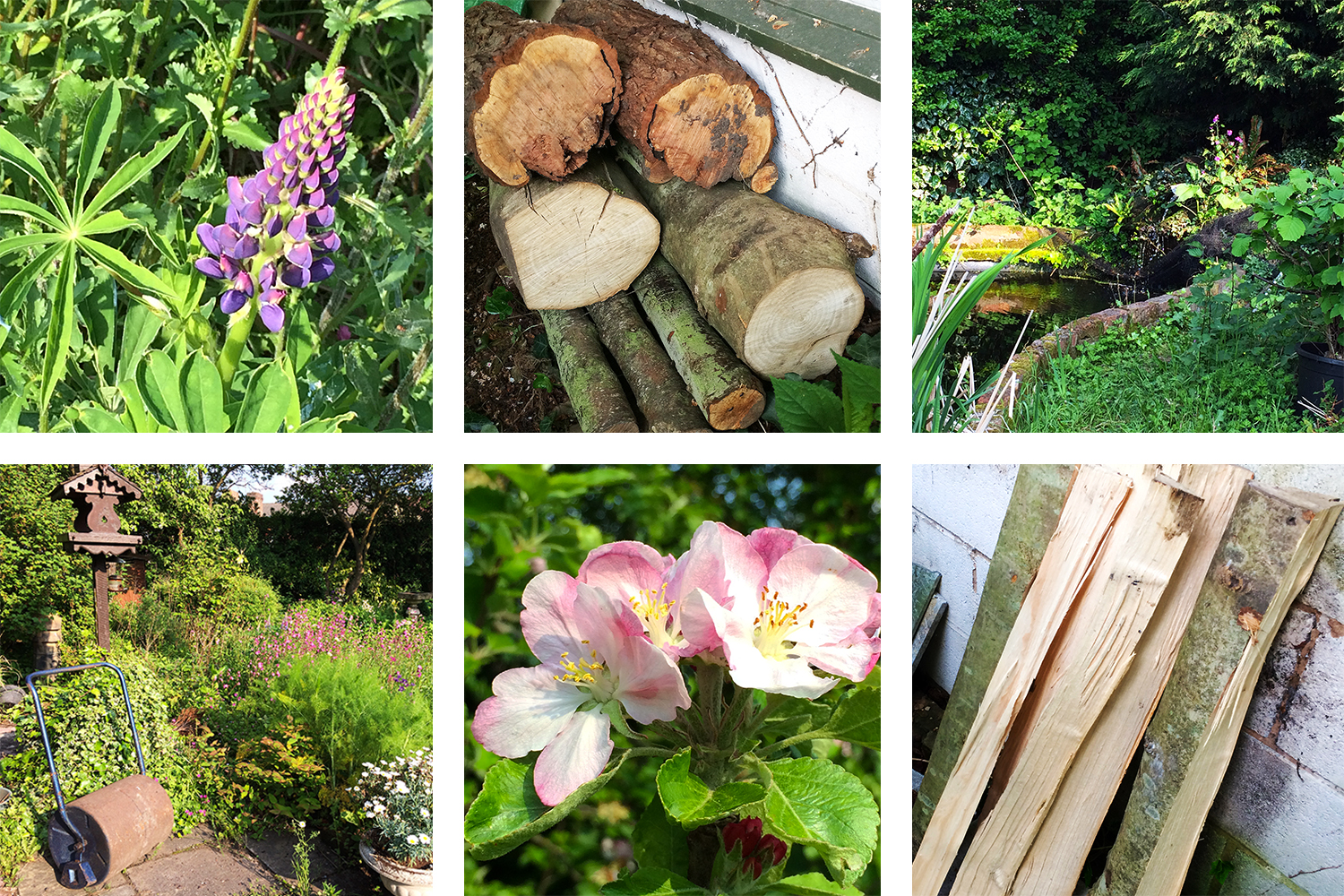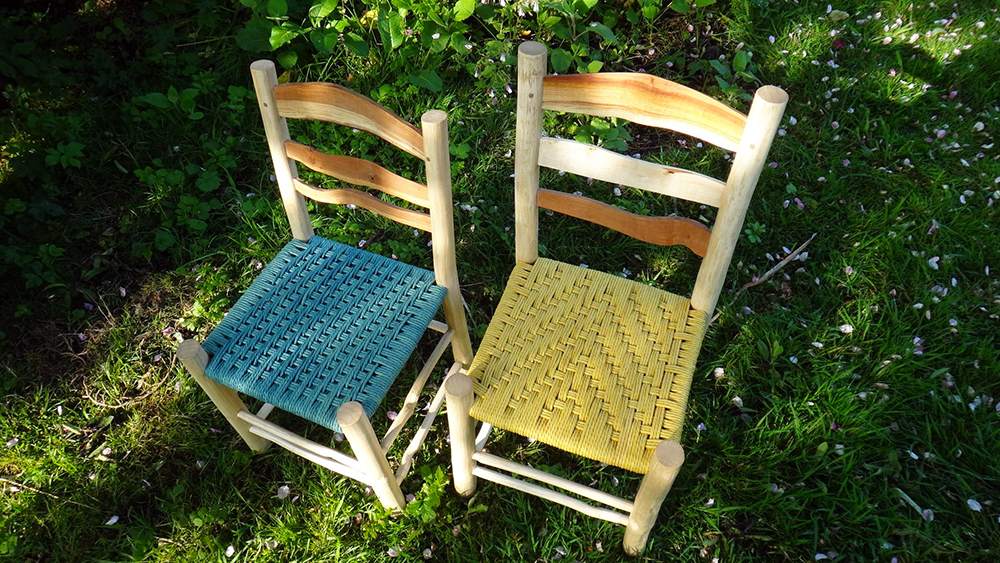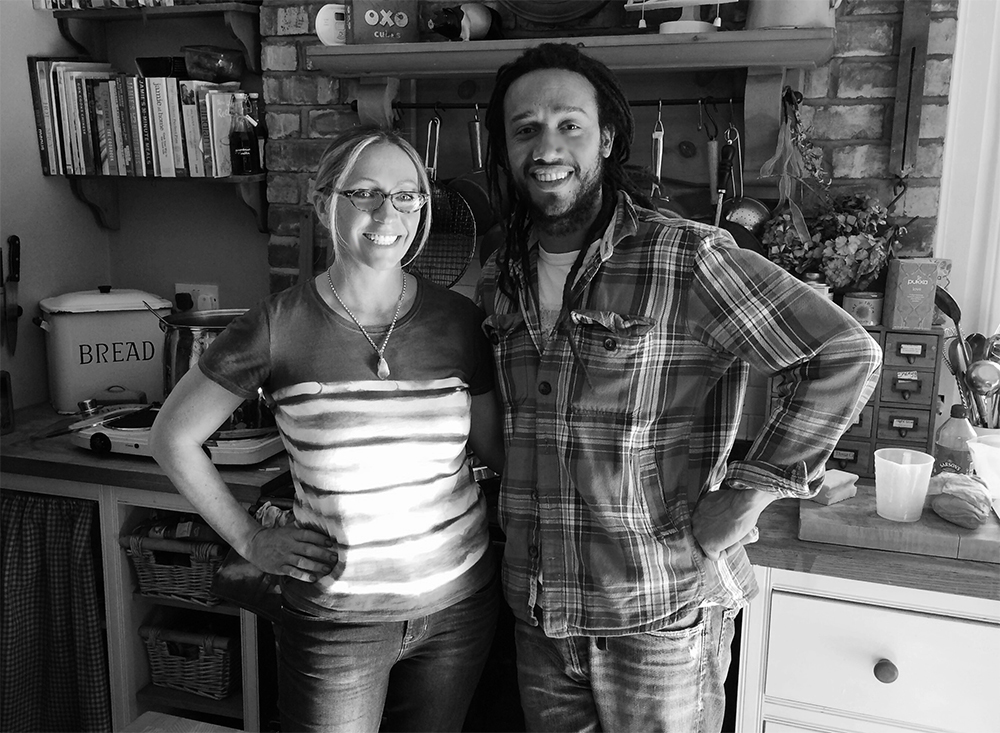Reconnecting
We’re living in an exciting era when, after years of glamourised mass consumption and disassociation from natural resources people are reconnecting with nature. We know we can go to a retailer and buy cheap products yet are starting to ask why it’s cheap, who made it and at what cost to the environment?
Many people are inspired by nature as observers; like an artist reproducing the beauty of a flower with pen and paper. Occasionally however, people develop deep connections with the natural world and rather than merely copying or even exploiting its resources, they allow the unique expression of the material to take the lead during the making process.
Marcus Drummond is one such artisan. A green wood worker with a deep reverence for the environment who creates heirloom furniture entirely by hand. For those of you not familiar with green wood work, it is an ancient craft that utilises the softness of newly felled trees for carpentry with hand tools.
Marcus and I reconnected last November. I say reconnected because we both had vague recollections of each other from our 20s partying round Liverpool! We reunited during a herbalism workshop where we were asked to tell the group a little about what we did. On hearing about my natural fabric dyeing, Marcus enquired about us collaborating as he needed someone to dye twine for children's chairs he was hand making. This is an account of our collaboration from February to May this year.
Green Wood Worker, Marcus Drummond
Marcus is an advocate for the therapeutic benefits of connecting with nature and the outdoors and is a director of community interest company, 'The Earth Skills Project'. He works with young people, families and professionals using the environment, adventurous activities and theoretical approaches to develop positive change.
As well as volunteering with local tree wardens and the Woodland Trust to help manage woodland around Merseyside and Cheshire he somehow finds the time to create beautiful woodwork using these locally sourced, sustainable materials.
Workshop
Experimenting
Marcus wanted to colour some twine to be woven into seats for his hand crafted children's chairs but neither of us knew whether this was possible using natural, plant-based dyes. Would the string unravel? Would the dye fix? Would my pans be big enough? I had only ever worked with small, lightweight fabrics so my first task was to experiment with some string samples.
At the time, I was developing my first natural dyeing workshop by producing a rainbow of fabric samples using only Madder, Weld and Indigo the way it had been done for thousands of years prior to the 1850s when synthethised colours were discovered. So it was easy to add some pieces of string to each dye vat.
As the scouring and mordanting process is the less pretty, more time consuming part of the process, I first wanted to establish whether that would be necessary so left half of the samples un-treated.
In the fold-up swatch book I made (above) the top row was scoured and mordanted and the bottom row wasn't. It was clear that the colour uptake was more vibrant after pre-treatment.
Upscaling
The next step was to upscale quantities from small samples to 6 X 650g coils. Logistically, this took some pondering as I'm used to dyeing dainty little silk scarves! The 6 coils were scoured 2 at a time for 3 hours each then thoroughly rinsed.
I found a more efficient method for mordanting all 4 kgs using the bath. They couldn't just go straight in though as the metal from the bath could have affected the dyes. Iron in contact with the fibres reacts with the dye 'saddening' or darkening the colour. So I covered the bath in a plastic decorating sheet then put it in to soak overnight.
Dyeing the chair twine
After the first 3 stages of pre-treatment; scouring, mordanting and fixing, dyeing is the quick fun part and we got some lovely colours. Not the perfect rainbow I had planned on the samples though as I made a classic error when using madder. Getting distracted by the promise of lunch on West Kirby prom, I left the hob on low with the madder and twine cooking nicely but when we got back full of ciabatta, the madder had boiled over and the colour turned a brick red/brown rather than bright red so the chance of true orange and purple had gone.
Lesson learned. I won't trust those little camping hobs again but, that's the charm of natural dyeing. It feels serendipitous and almost fated sometimes because the colours made their own slightly more rustic and less gaudy spectrum. A 'sandstone' red, warm yellow/orange, pale yellow (undyed, scoured twine) green, turquoise and dark blue and maybe that's exactly how they were supposed to be.
Letting go of the predictable outcomes we've been trained to expect from synthetic dyes is very much a part of this practice and a lesson in itself which aligns well with Marcus's approach to his wood working where he allows his results to alter subject to each individual trees characteristics.
Provenance
The chairs are made from oak, ash and yew, all sourced and felled by Marcus himself. This provenance makes these chairs vastly different from their flat pack versions in IKEA. The wood hasn't been sanitised into perfectly measured, symmetrical shapes then hammered together with nails or screws, instead it's been sympathetically crafted using tenon and mortise joints without any glue. The chairs haven't passed through the hands of hundreds of factory workers on minimum wage either. There's the tree, Marcus, then the future buyer who will hopefully feel all the more connected to the living breathing life that provided the materials.
Green Wood Hand Crafted Children’s Chairs
Here are the first two chairs, each woven with different patterns. They are totally charming, completely unique heirloom quality chairs that will be passed down through some lucky family for generations to come.
The power of two
I haven't collaborated with another maker before, partly because the opportunity hasn't presented itself but also because I love the freedom of working by myself. It's been such a great experience hanging out with someone who shares a similar ethos though. This connection came at a time when I was procrastinating due to feeling a bit daunted starting my Eco-Spectrum project so having someone who needed me to step up and simply do it was a great catalyst.
Marcus is an inspirational craftsman whose work authentically reflects his ethical beliefs. His positive influence has accelerated my work and he's become a friend who has supported and encouraged me through this eventful year so I'm thrilled he'll be offering a workshop for anyone wishing to try green wood working themselves at my newly opened studio.
Yes, you can easily buy a wooden spoon from the pound shop but have you noticed that when everything is cheap and disposable, nothing is precious anymore and consuming looses its charm? You can't substitute the love that goes into hand-made items or the rewarding feeling of making something ethically yourself.
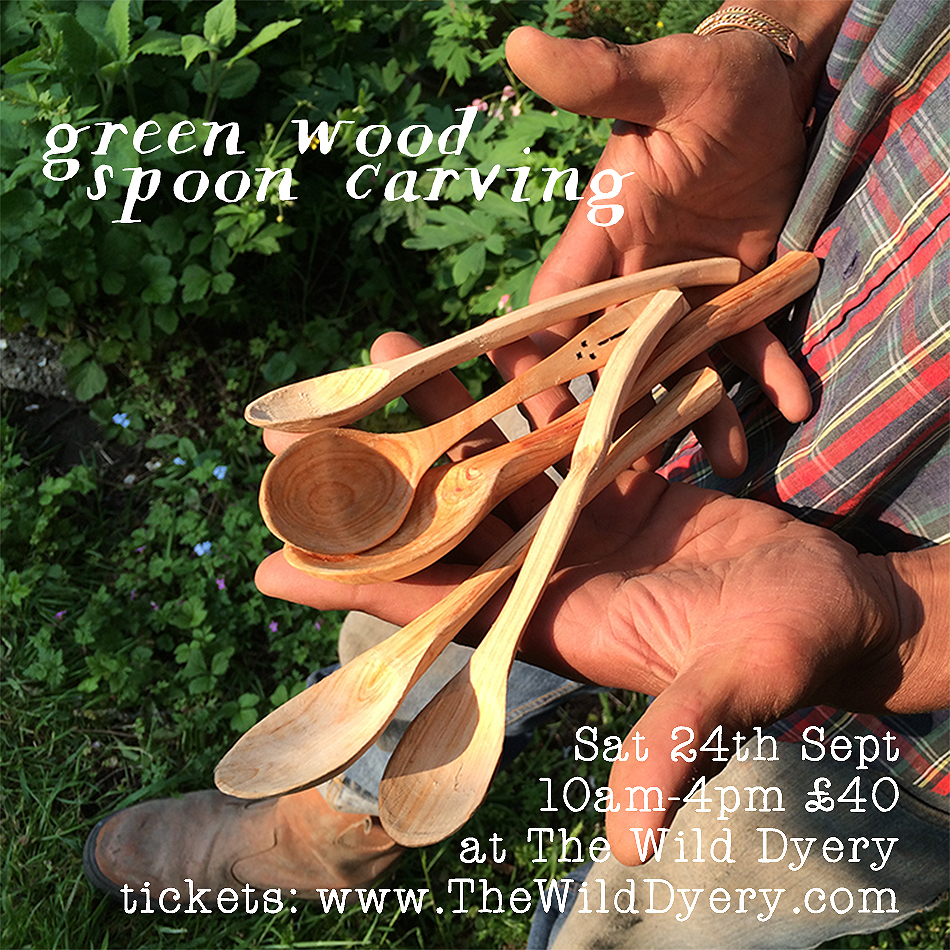
I think Marcus and I both hope that the capitalist machine will consume itself and the pendulum of common sense will return to those who know there’s a more fulfilling and worthwhile alternative.
Most of us are bombarded to the point of numbness about the problems associated with our 'throw-away' culture and whilst awareness and education are necessary, Marcus has reminded me that we can instead choose to focus on solutions. By living and working with compassion and respect we make what some perceive as the mundane sacred and build within ourselves reverence for our truly awe-inspiring planet. Then when we feel connected it's impossible to exploit and the problem is solved.
These two beautiful chairs are currently being displayed at The Wild Dyery studio and I look forward to seeing who will walk through the door, appreciate their story and vote with their wallet to support those of us who make for the love of it. There are soon to be a couple of very lucky children.





